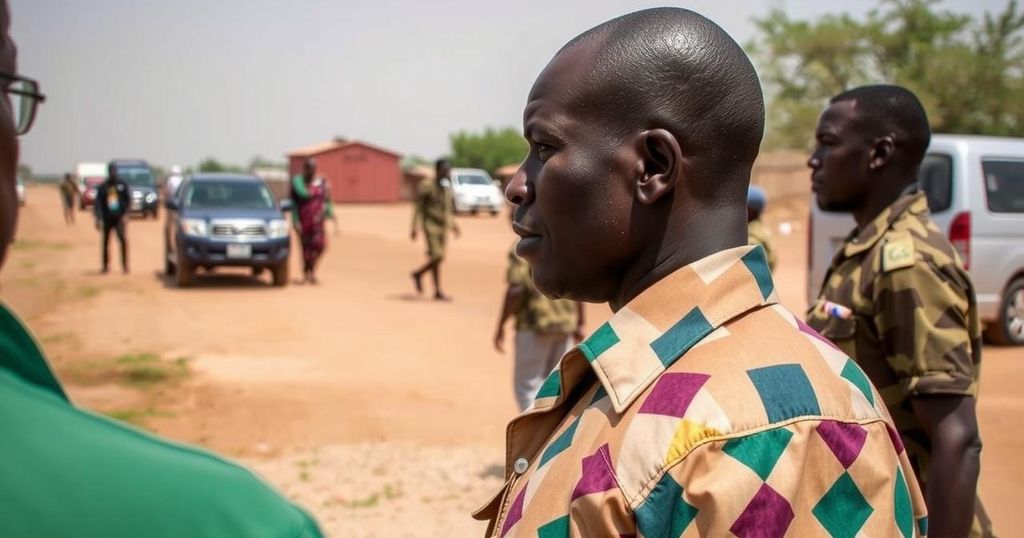The South Sudan government has removed checkpoints on major roads, including Juba-Bor, eliciting mixed reactions. While some residents welcome the decision for improving travel efficiency, others fear increased vulnerability to crime. SSPDF assures continued surveillance despite the elimination of illegal posts. Concerns persist regarding low morale among security forces due to salary delays.
The recent announcement by the Government of South Sudan to eliminate checkpoints along significant highways, notably the Juba-Bor route, has elicited diverse reactions from commuters, local residents, and security analysts. While a segment of the population perceives this as a positive development that could enhance travel efficiency, others voice concerns regarding the safety implications, fearing that the removal of security posts may heighten the risk of assaults by armed groups.
The South Sudan People’s Defense Forces (SSPDF) affirmed the decision to dismantle unauthorized checkpoints, aligning with directives from President Salva Kiir aimed at improving national safety. Commuters such as Chol Chopa from Bor have cautiously welcomed the removal of roadblocks, pointing out the reduction in travel delays, although he remains apprehensive about the potential resurgence of attacks due to diminished security presence.
Chopa remarked, “There were many roadblocks and frequent stoppages on the Juba-Bor route, but now they are gone. The absence could be dangerous as bandits could take advantage of the situation.”
In contrast, some residents, such as Victoria Yom Geu, have a more optimistic outlook towards the removal of checkpoints. Geu highlighted that the elimination of roadblocks could enhance traffic flow, reduce illegal tax collection, and subsequently bolster the local economy. She stated, “We see it as reducing insecurity and making trade more efficient.”
Similarly, Mach Anyang, a frequent driver on the Juba-Bor road, expressed approval of the decision, noting that the removal of checkpoints would alleviate frustrations caused by past extortions faced from soldiers along the route.
In addressing public concerns, Major General Lul Ruai Koang, spokesperson for the SSPDF, sought to reassure citizens about their safety, stating that the military would maintain surveillance through strategic patrols along the highways. He noted, “We are monitoring the roads and patrols will continue where needed.”
However, the delay in the disbursement of salaries for government workers has contributed to a decline in morale among security personnel. Reports indicate that some soldiers have abandoned their posts due to unpaid wages, raising additional worries regarding potential security vulnerabilities.
As South Sudan grapples with the challenges of enhancing road accessibility while ensuring public safety, the populace remains divided on the long-term ramifications of this significant policy change.
The Government of South Sudan’s recent decision to remove checkpoints along major transportation routes, particularly the Juba-Bor highway, aims to facilitate smoother travel and mitigate issues stemming from illegal taxation and extortion practices. However, the ongoing security concerns in the region, marked by the presence of armed bandits, exacerbate the potential risks associated with this policy shift. This dynamic creates a complex scenario whereby the government seeks to enhance civilian mobility while simultaneously addressing the persistent threats posed by criminal elements.
In conclusion, the removal of checkpoints in South Sudan has generated a spectrum of responses, highlighting the ongoing tension between the need for increased travel efficiency and the imperative of ensuring public safety. While some commend the government’s decision for its potential to streamline transportation and stimulate economic activity, others express valid fears regarding increased vulnerability to crime. As the SSPDF strives to bolster security through continued monitoring, the country’s ability to balance these competing priorities remains paramount.
Original Source: www.radiotamazuj.org






